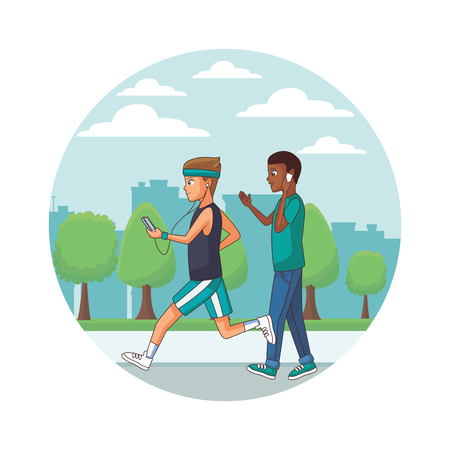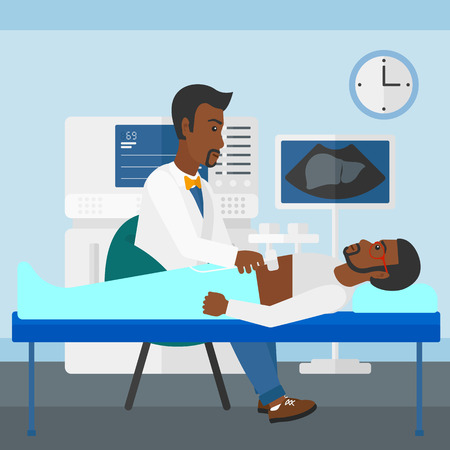Introduction to Injury and Mental Wellbeing
Physical injuries are an unavoidable part of life, whether caused by accidents, sport, or unforeseen health conditions. While the immediate concern is often the physical pain and recovery process, it is essential not to overlook the profound effect that injury can have on mental wellbeing. In the UK, where both sport and active lifestyles are integral to many communities, individuals may experience a unique set of psychological challenges when faced with injury. These challenges can include anxiety about returning to work or activities, feelings of isolation during recovery, and worries about long-term changes in mobility or independence. The intersection of physical injury and mental health is complex, often influenced by societal expectations, access to support services such as the NHS, and prevailing attitudes towards seeking help. Recognising this connection is crucial for effective recovery, highlighting the importance of counselling and psychotherapy in helping individuals navigate not only their physical healing but also their emotional resilience.
2. Understanding Counselling and Psychotherapy Approaches
In the UK, a wide array of counselling and psychotherapy modalities are available to support individuals coping with the emotional impact of injury. Each therapeutic approach offers distinct techniques, structures, and areas of focus, catering to diverse personal needs and preferences. Understanding these options is crucial for making informed decisions about mental health support during recovery.
Common Therapeutic Modalities in the UK
| Therapeutic Approach | Description | How It Supports Emotional Recovery After Injury |
|---|---|---|
| Cognitive Behavioural Therapy (CBT) | A structured, time-limited approach focusing on identifying and changing unhelpful thoughts and behaviours. | Helps manage anxiety, depression, and trauma by developing practical coping strategies for negative emotions arising from injury. |
| Person-Centred Counselling | An empathetic, non-directive therapy emphasising self-exploration and personal growth. | Provides a safe space to process feelings of loss or frustration linked to injury, promoting acceptance and resilience. |
| Integrative Therapy | Combines elements from different therapies tailored to individual needs. | Offers flexibility, addressing complex emotional responses by blending various effective techniques. |
| Psychoanalytic/Psychodynamic Therapy | Explores unconscious patterns rooted in past experiences to understand present difficulties. | Supports long-term emotional healing by uncovering deep-seated issues that may be triggered by physical trauma. |
| Solution-Focused Brief Therapy (SFBT) | A goal-oriented approach concentrating on finding practical solutions rather than dwelling on problems. | Motivates positive change and restores hope by highlighting strengths and achievable steps forward after injury. |
The Role of Culturally Competent Practice in the UK Context
Counsellors and psychotherapists practising in the UK are trained to be sensitive to cultural backgrounds, beliefs, and values. This is particularly important in supporting those who might feel isolated or misunderstood due to their unique experience of injury. Professionals often work collaboratively with clients to ensure that therapeutic interventions are respectful of individual identity and community context.
NHS vs. Private Sector: Accessing Support
The NHS provides free or low-cost access to many counselling services, although waiting times can vary depending on location and demand. Alternatively, private practitioners offer more immediate support but at a cost. Many UK-based therapists are accredited by professional bodies such as the BACP (British Association for Counselling and Psychotherapy) or UKCP (UK Council for Psychotherapy), ensuring quality standards across both sectors.
Choosing the Right Approach for Your Recovery Journey
Selecting a therapeutic modality is highly personal. Some individuals benefit from structured approaches like CBT, while others prefer exploratory styles such as person-centred counselling. A therapist can help assess which model aligns best with your goals and circumstances following an injury. Ultimately, understanding these options empowers you to make choices that foster both emotional resilience and holistic recovery.

3. Cultural Attitudes Towards Mental Health and Seeking Support
Within the UK, attitudes towards mental health and accessing support such as counselling or psychotherapy have historically been shaped by a mixture of stoicism, privacy, and at times, a certain reluctance to discuss emotional struggles openly. This cultural backdrop has influenced how people respond to injury—not only in terms of their physical rehabilitation but also regarding psychological recovery. For many, the expectation has long been to “get on with it” or “keep a stiff upper lip,” which can discourage individuals from seeking the emotional support they might need after experiencing an injury.
However, in recent years there has been a notable shift in British society’s openness about mental health. National campaigns, increased media coverage, and endorsements from public figures have all helped reduce stigma. More Britons now recognise that physical injuries often have deep psychological impacts—ranging from anxiety and frustration to issues with self-esteem or identity. The acknowledgement that recovery is not just about healing the body, but also about addressing emotional well-being, is gradually becoming mainstream.
Despite these positive changes, some barriers still exist. Concerns about confidentiality, fears of being seen as weak, or simply not knowing where to turn for help can delay or prevent people from accessing counselling or psychotherapy services. Moreover, societal expectations—whether in sports, workplaces, or even family settings—can subtly reinforce the idea that emotional distress should be managed privately rather than with professional assistance.
The role of society and culture in shaping recovery cannot be underestimated. When communities and institutions normalise seeking support for mental health after injury, individuals are more likely to take proactive steps towards holistic healing. Conversely, where taboos persist or misconceptions remain unchallenged, people may struggle alone longer than necessary.
In summary, while British attitudes are evolving towards greater acceptance of counselling and psychotherapy as essential components of recovery from injury, ongoing efforts are needed to challenge remaining stigmas and ensure that everyone feels empowered to seek help without judgement. Promoting open conversations and making support accessible at all levels—within schools, workplaces, and healthcare systems—will ultimately foster better outcomes for those coping with injury across the UK.
4. The Practical Benefits of Talking Therapies After Injury
Counselling and psychotherapy offer tangible, everyday support for those facing the aftermath of injury. In the UK, talking therapies are not only about processing emotions but also about fostering resilience and practical coping strategies. This is particularly relevant when individuals face barriers to returning to work, social isolation, or a significant change in their sense of identity after an accident or illness.
Examining Real-World Impact
Take, for example, the experience of Lewis, a builder from Manchester who suffered a severe leg injury on site. Through regular sessions with a psychotherapist, he learned structured techniques to manage anxiety about mobility and future employment. Similarly, Sarah, a teacher from Bristol, found that group counselling at her local NHS trust helped her reconnect socially after a cycling accident left her housebound for months. These cases illustrate how therapy can be tailored to individual needs within the context of British healthcare and community services.
Concrete Ways Therapy Assists Recovery
| Therapeutic Focus | Practical Benefit | UK Case Example |
|---|---|---|
| Goal-setting and pacing | Improved motivation and structure during rehabilitation | NHS physiotherapy patients in Leeds using CBT techniques to track progress |
| Managing pain and discomfort | Reduced reliance on medication; increased self-efficacy | Liverpool pain management clinics integrating mindfulness-based therapy |
| Challenging unhelpful beliefs | Greater acceptance of physical limitations; enhanced self-esteem | Charity-run support groups in Scotland for spinal cord injuries |
| Building social connections | Decreased isolation; improved mood | Mental health hubs in London offering peer-led recovery groups |
Cultural Sensitivity in Practice
The practical delivery of these therapies often reflects British values—emphasising confidentiality, respect for individual autonomy, and collaboration with multidisciplinary teams (such as GPs, occupational therapists, and community nurses). For many clients, the therapeutic space becomes one where they can speak freely without judgement—a marked contrast to sometimes stoic attitudes towards injury prevalent in UK workplaces or families.
A Return to Everyday Life
Ultimately, the goal is not just emotional healing but facilitating a return to meaningful daily activities—whether that’s resuming work, engaging in hobbies, or simply navigating public transport confidently again. By combining psychological insight with practical tools tailored to each person’s context, talking therapies help bridge the gap between clinical recovery and real-world living.
5. Challenges and Barriers to Accessing Therapy
Despite the clear benefits of counselling and psychotherapy for individuals coping with injury, several challenges persist in the UK context. One of the most significant barriers is the lengthy waiting times associated with NHS mental health services. Many people seeking psychological support following an injury can face delays of weeks or even months before their first appointment. This waiting period can exacerbate feelings of isolation or distress, particularly when early intervention could be most beneficial.
Stigma also remains a considerable obstacle. Although public attitudes towards mental health are gradually improving, there can still be a reluctance to seek help, especially among those who perceive psychological support as a sign of weakness. This is often compounded by cultural norms that emphasise resilience or “getting on with it,” making it difficult for injured individuals to prioritise their emotional wellbeing.
Another practical barrier involves accessibility and awareness. Not everyone is aware of the full range of therapeutic options available, including community-based services, online platforms, or charity-led initiatives. Cost can also be prohibitive for those seeking private therapy, particularly if they are unable to work due to their injury.
To address these barriers, several approaches have shown promise. Increasing investment in NHS mental health services is crucial for reducing waiting times and ensuring timely access to therapy. Public education campaigns can help tackle stigma by normalising conversations about psychological recovery and highlighting stories of those who have benefitted from counselling after injury. Expanding digital therapy offerings and self-help resources may also improve accessibility, especially for people in rural areas or those with limited mobility.
In conclusion, while obstacles remain, a combination of policy changes, cultural shifts, and greater awareness can pave the way for more equitable access to counselling and psychotherapy for those coping with injury across the UK.
6. Future Directions and Resources for Support
As the landscape of mental health support evolves, counselling and psychotherapy continue to play a vital role in the recovery journey following injury. Recent years have seen several emerging trends in the UK, such as digital therapy platforms, peer support networks, and trauma-informed care approaches. These innovations are making therapeutic support more accessible and tailored to individual needs, particularly for those facing barriers to traditional face-to-face sessions.
Emerging Trends in Psychological Support
One significant trend is the increasing use of online counselling services, such as those provided by BACP-registered therapists via secure video calls. This flexibility allows individuals recovering from injury—whether at home or in hospital—to access professional help without logistical constraints. Additionally, trauma-focused therapies like EMDR (Eye Movement Desensitisation and Reprocessing) are gaining traction for their effectiveness with injury-related psychological distress.
Key UK Organisations Offering Support
The United Kingdom offers a robust network of organisations dedicated to supporting those coping with injury through counselling and psychotherapy. The NHS Talking Therapies service provides free psychological therapies across England. For more specialised support, the Headway charity assists people affected by brain injury, while Samaritans offers 24/7 emotional support for anyone experiencing distress. The British Association for Counselling and Psychotherapy (BACP) also maintains an online directory of accredited therapists who understand the unique challenges faced after injury.
Advice for Those Seeking Help After Injury
If you or someone you know is struggling emotionally after an injury, it is important to reach out early. Start by speaking with your GP, who can make referrals to appropriate services. When searching for a therapist, look for professionals registered with bodies like BACP or UKCP to ensure high standards of practice. Remember, seeking help is a sign of strength—not weakness—and there is no one-size-fits-all approach; finding the right type of therapy may take some time. Finally, consider connecting with local peer groups or online forums where you can share experiences and encouragement with others on a similar path. By making use of these resources and staying open to new approaches, individuals coping with injury can find meaningful support as they work towards recovery.


